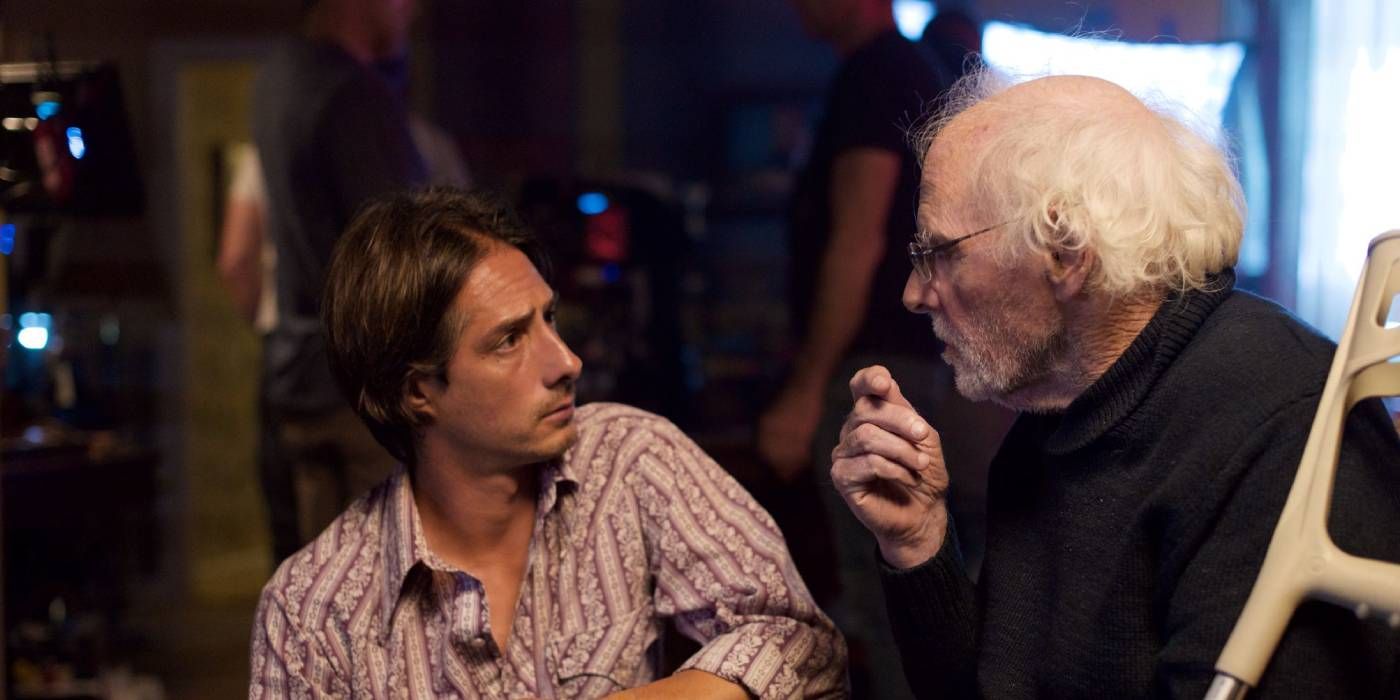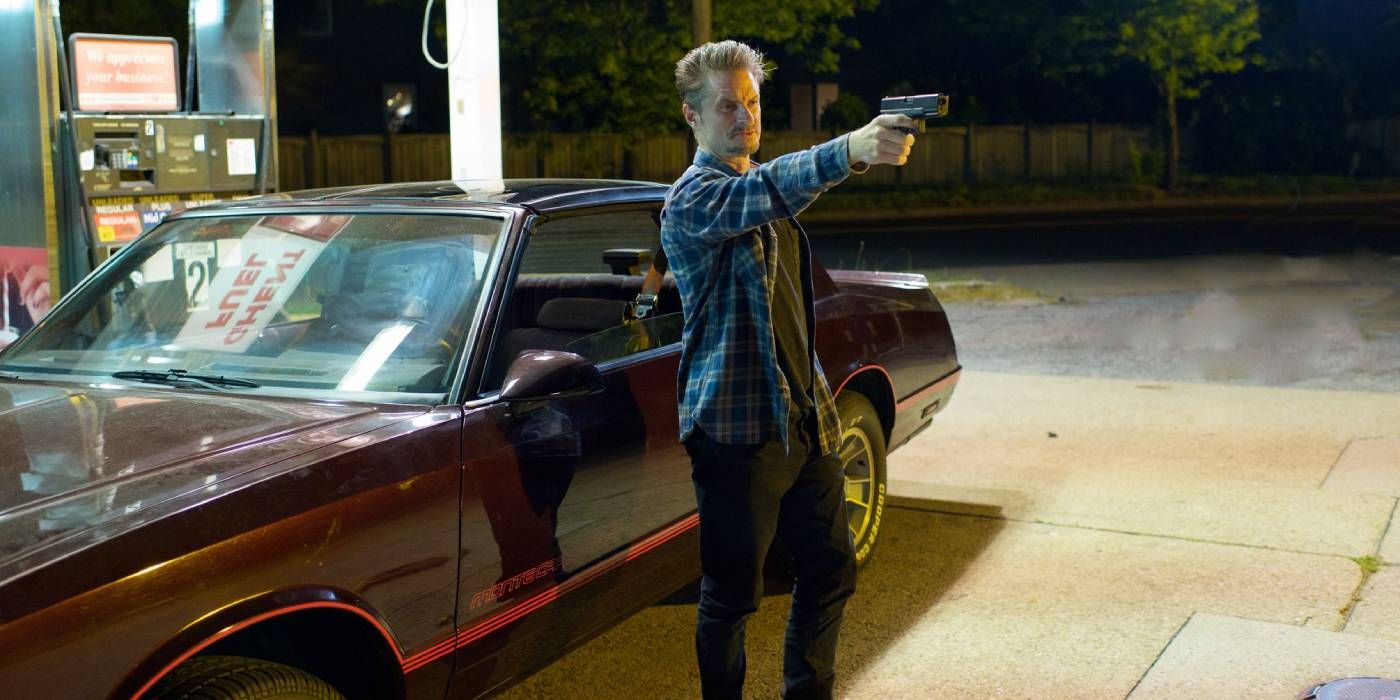Like many filmmakers, director Michele Civetta's early career saw him helm numerous short films. The infancy of his career included such shorts as Parachute, Friendly Fire, 42 One Dream Rush, All Over, and You Are. He made feature debut with 2020's Agony and is now back with the new crime thriller The Gateway.
Featuring Shea Whigham, Olivia Munn, Frank Grillo, Bruce Dern, and Keith David, The Gateway sees Whigham portray social worker Parker, who looks after a mother and her child while their father Mike (Zack Avery) is incarcerated. When Mike finally gets out, Parker must protect his new surrogate family. With its ensemble cast and a screenplay that was featured on 2013 Black List (comprised of the most liked unproduced scripts to that point), Michele really gets to show what he can do as director at the helm of a dark crime thriller.
We speak to Michele on the making of The Gateway, the challenges of distributing the film in the midst of the ongoing pandemic, and other projects he has coming up in the future.
Screen Rant: How did The Gateway first come about?
Michele Civetta: I have a friend, Andrew Levitas, who actually produced the film. He came to me a couple of years ago now and he said, "I have a really great script. It's sort of a rudimentary inner-city crime thriller. If you can kind of dig in and rewrite it and bring it to a place where it's ready to shoot, it's yours.'' So, I kind of dug in and did a full rewrite on the picture, and from there, we were all happy enough that I was able to start the casting process and all of that.
The movie also has a pretty sizeable cast, which includes names like Shea Whigham, Olivia Munn, Frank Grillo, and Keith David. What was it like working with all of them?
Michele Civetta: It was definitely a dream come true. I've been a huge Keith David fan since I was a kid with stuff like Platoon and his work with John Carpenter. I was also really fortunate to have Shea, but he's like the ultimate insider actor's actor, so he lent a [reality] and validity to what this film was from the get-go. He's not afraid to go to complex places and explore visceral truth as an actor. So, from there, we were turned to Olivia, and slowly this pantheon of actors started to fill out, and I was really fortunate that even for small characters, I was able to find people along the way who wanted to come out and play with us.
Did The Gateway have to deal with COVID?
Michele Civetta: We wrapped about six months before the pandemic started, so we were in the sound mixing stage. The real challenge was we were anticipating trying to bring it to Cannes or Venice for the festivals, but we kind of divided the plan where we said, "With everything in such a state of flux at the moment, let's start to show it around at the American Film Market in California." We got lucky and we had five or six people who offered to pick up the picture, and we were beyond blessed to get Lionsgate in our corner and Grindstone because they've done one heck of a job in delivering this picture. Having them in our corner at this point means a lot, obviously.
Sounds like COVID might've still affected the release plans a bit?
Michele Civetta: Oh man, it's been so touch-and-go with being back in theaters, and do people want to be back in theaters, and certainly, as a filmmaker, you want to play in theaters. I think we're really lucky with the window of time this is releasing where we'll be able to play a bit in theaters and on VOD at the same time, and thankfully, a lot of people have gotten really used to watching stuff on their TV's.
What were some of your favorite scenes to shoot for the movie?
Michele Civetta: The film definitely sets out to uncover a lot of topical things, whether drug trafficking, border politics, domestic violence, and the human toll on everyone within the community that Shea Whigham's character Parker uncovers. To me, it's really interesting to see yourself in one tone or range of ideas that you discover when making it. I think a lot of actors were very generous in bringing their own range of experiences, whether it's something from childhood or complex ideas about the world and to bring that into the texture of this piece. I do see it as kind of a tapestry piece of America at the crossroads at this point in time. We're reckoning with our past and looking towards our future, and now more than ever, what can we do to solve all of this stuff that's on our plates these days?
The Gateway is your second feature film, but you've done numerous shorts as well. Aside from the effects of the pandemic, how was making The Gateway different from one of your shorts like Agony or Friendly Fire?
Michele Civetta: Well, Friendly Fire is nearly twenty years back at this point. When I first started off directing, I did a lot of work in commercials and videos, that's kind of where I cut my teeth. I was certainly more technically-minded and much more of a visual director back then. As I've gone forward with my work, I've just become more attuned to just what it means in terms of what actors bring to the table and just what that fusion is.
Many times when you're younger doing this work, you're a little intimidated by the complexity of what actors bring to the table. I would say now, I kind of like to know where we're going, but then just be tactile and visceral in the moment, and just kind of understand what those emotions are. What really speaks volumes is it's these actors who bring these things to life, and I'm just so proud of every single one of their performances. I think part of it is just that fusion of all of these creative personalities that really make these work.
With the tone of The Gateway being a crime thriller, is that something you'd want to continue exploring in future projects.
Michele Civetta: I don't really think for myself I'm genre-specific, per se. Tone is something specific, and I've just got to see a window into characters. I think I'd want to go into the 1920's and Florida and where the world was next.
What were some of the most memorable moments during the filming of The Gateway?
Michele Civetta: Anything that involves stunt coordination, and we had a great stunt coordinator, Curtis Lyons. There's palpable stakes because they're kind of the unsung heroes of the film industry. They are kind of risking their lives in small ways to achieve stuff that appears kind of effortless on-screen. We had a bad accident on Agony with a stunt person, so on this - with the final shootout sequence in Marcus' house with all the car crashes - I was real reticent about doing some of those stunts because you have cars driving towards people and stuff like that. Between that and about forty-five guns, and those things still misfire and squibs blow up, I'm not a fan of guns or gun politics, so I treat all of that stuff with extreme respect. You have things that'll blow up plaster on the wall and hit an actor in the face.
What do you have coming up in the future after The Gateway?
Michele Civetta: I'm really knee-deep in writing right now, so I'm trying to kind of map out what I want to do next, but I'm looking to do a long-form TV show that's kind of like Boardwalk Empire [that] involves the 1920's real estate boom in Florida. It kind of taps into the racial injustice of that era and prohibition politics. There's also another series I'm looking at that involves what I like to call "surf gangsters".
I'm grateful that it seems like everyone now is starting to get back into work and things are starting to re-align, we've just got to keep looking after each other and build into this new world.
The Gateway is currently available in theaters and on VOD.


